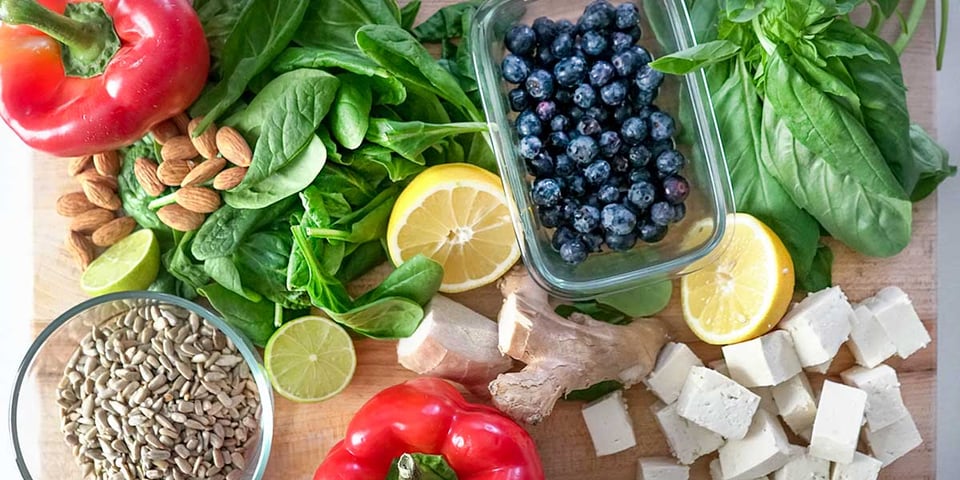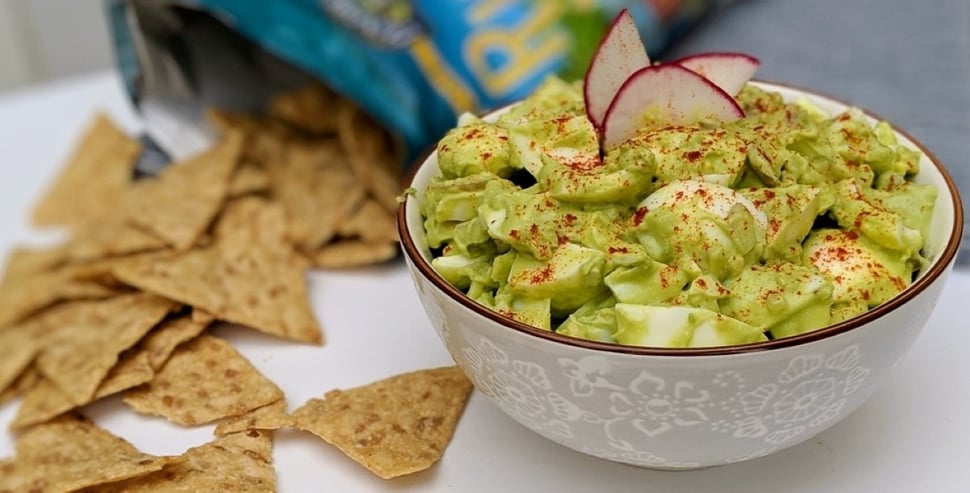Our diet plays a key role in regulating the health of our gut microbiota and modulating the amount of good and bad gut bacteria. Learn how to support healthy digestion by planning a diet rich in whole foods good for your gut health!
Are You Struggling with an Unhealthy Gut?
The great Ancient Greek physician Hippocrates once said, "all disease begins in the gut" and emerging evidence suggests he really wasn't that far off.
Your gut microbiota is a symbiotic collection of over 100 trillion different microorganisms and bacteria that can be influenced by genetics, lifestyle factors, and our environment!
If your diet is consistently lacking in fiber and high in processed ingredients, it may take you longer to digest your food, allowing toxic by-products to accumulate in your digestive tract. Processed foods also contain higher levels of food additives, hydrogenated fats, and added sugars that promote inflammation.
This is why diets high in processed carbs, added sugars, and unhealthy fats have been associated with decreased microbiome diversity and an increased risk of chronic disease development (1).
So how can you support proper digestion and a flourishing gut microbiota?
Incorporating fresh whole foods, and eating mindfully, can help support gut health by feeding our healthy bacteria, reducing inflammation, and promoting overall wellness.
We craft personalized meal plans with whole foods, healthy fats, and lean proteins to support your health. A healthier gut begins with what's on your plate, and we're serving up feel-good food to nourish your body.
What Are Gut-Health Foods?
There is no scientific definition to what gut health foods are, but research has shown that fresh fruits and vegetables, and fermented foods, containing nutrients, fiber, and prebiotic and probiotic compounds can support a healthy gut microbiota and overall wellness.
Some people may experience gas and bloating when they increase prebiotic and probiotic-rich foods in their diet, or when they begin taking a probiotic supplement. This is normal as your body may need time to adjust to the changes in your diet, and these symptoms usually go away after a week or so (1, 2)
Before making any big changes to your diet be sure to consult with your primary care physician or a Registered Dietitian, especially if you struggle with histamine intolerance, food sensitivities, or food allergies.
25 Best Foods For Gut-Health and Digestion
When it comes to cultivating a healthy gut, don't focus on eating only one thing, as your diet is an accumulation of all your choices; diversity and consistency are key!
10 Probiotic Friendly Foods
Probiotics are living, non-pathogenic, microorganisms found in fermented foods and supplements that reinforce similar micro-organisms naturally present in our gut.
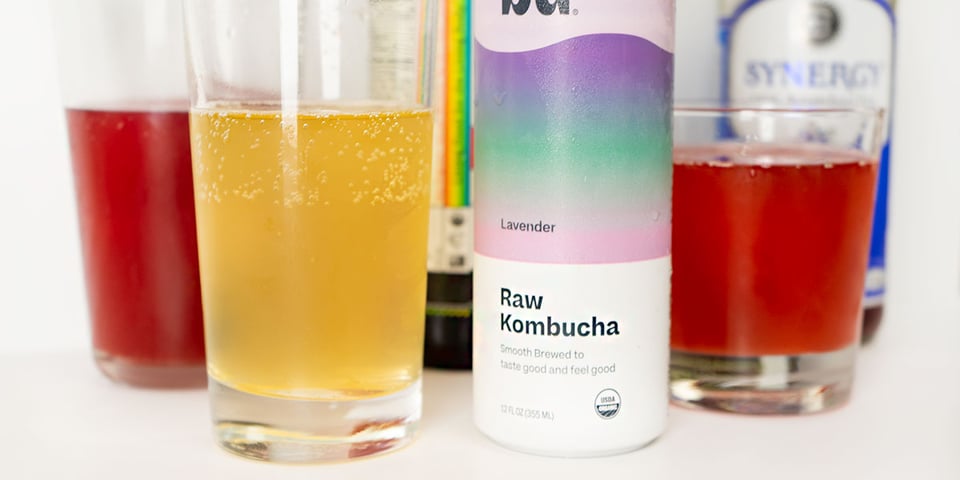
Fermented foods are considered a staple in fostering a healthier gut, as they are thought to have higher amounts of active bacteria, aka probiotics.
Here are 10 probiotic-rich foods you may want to incorporate into your daily meal plan to support the health of your gut:
- Kimchi
- Sauerkraut
- Yogurt
- Kefir
- Kombucha
- Miso
- Tempeh
- Fermented AKA "Pickled" Vegetables
- Apple Cider Vinegar
- Soft Cheeses (cottage cheese, brie)
10 Fiber-Rich Prebiotic Foods
Prebiotic foods contain more complex carbohydrates (such as inulin, an insoluble type of fiber) which are fermented in our gut and produce metabolites called short-chain fatty acids that feed and nourish the "good bacteria" in our digestive tract.
These short-chain fatty acids are absorbed by the cells in our intestinal lining and are the main source of nutrients for those cells. Short-chain fatty acids, such as butyric acid, help keep our gut barrier strong and reduce inflammation (3).
Prebiotic Rich Foods Include:
- Asparagus
- Chickpeas
- Onions
- Almonds and Nuts
- Fresh Fruits (Raspberries, apples, blueberries, blackberries, etc.)
- Quinoa and Other Whole Grains
- Sweet Potatoes
- Artichokes
- Broccoli and Cruciferous Vegetables
- Bananas
5 Other Surprising Gut Health Foods
At the end of the day, you'll always see the most benefits from eating a balanced diet rich in whole fruits and vegetables, but here are a few other foods you can add to help support your digestive health.
1. Ginger and Ginger Beer
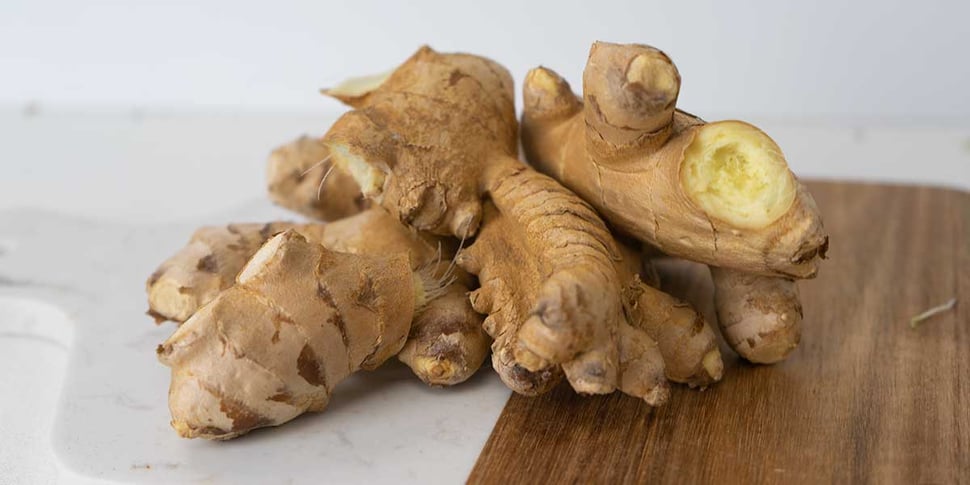
Traditionally brewed ginger or root beer is prepared similarly to kombucha; a symbiotic colony of yeast and lactobacillus bacteria aids in fermenting the ginger, sugar, and water into a delicious carbonated beverage.
Ginger has been used for generations as a natural home remedy for soothing digestive upsets, and thanks to modern scientific studies we nows know that ginger has various therapeutic effects. Ginger contains antioxidant, anti-inflammatory, and immuno-supportive compounds (4).
So it's no doubt this probiotic-filled soda may be a better choice over other alternative sweet carbonated beverages. That being said, always be sure to read the label, even ginger beers can contain unwanted excess sugars; aim to find a brand with as little sugar as possible, or like any food that's a bit sweet, aim for moderation!
Ginger beer and ginger ale are used interchangeably to refer to a fermented ginger soda; ginger beer tends to be stronger in flavor.
2. Sprouted Grains
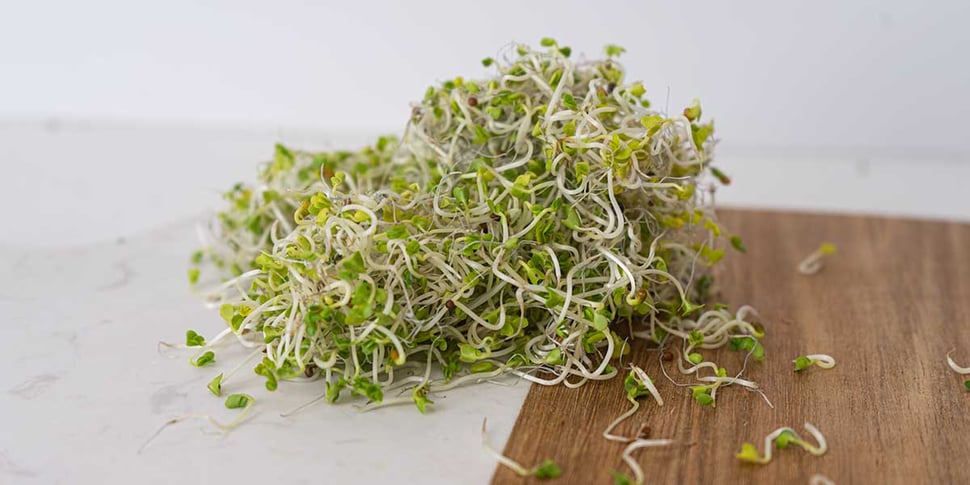
Sprouted grains refer to grain or seed that has been first soaked in water, and then kept damp for a specific amount of time until it begins to sprout!
They are considered a superfood because the process of germination increases the concentration and bioavailability of vitamins and minerals such as folate, fiber, vitamin C, zinc, magnesium, and B vitamins (5).
You can germinate your own sprouts at home or pick some up from the grocery store! They are great to mix into salads and stir-frys and also make delicious on-the-go snacks.
If you purchase products that contain sprouts such as sprouted bread or tortillas, be aware that they may not contain the same amount of nutrients as the raw sprout itself due to the manufacturing process.
"Superfood" or "functional food" are unregulated terms popularly used to refer to foods that may provide benefits beyond their nutritional value, like improving gut health or lowering blood pressure.
3. Bone Broth
For a long time, it's been theorized that homemade bone broth can support your health. You've probably heard of the "chicken soup" remedy for colds and flu as bone broths are easy to digest and believed to have healing abilities.
This theory is partially back-by science as it's true that homemade bone broth contains bioavailable collagen, and easily digested amino acids, vitamins, minerals, and essential fatty acids, but only in small amounts (6).
The type and amount of amino acids and nutrients can also vary based on the type of bones used, how long the broth is cooked, and the amount of processing (if it's canned or packaged).
The truth is bone broth is not a panacea, there isn't enough scientific research yet to claim bone broth alone will heal your gut, boost your immunity, or cure illness. In fact, most studies have focused on observing the benefits of ingesting isolated forms of collagen or gelatin for skin and joint health, not bone broths specifically for gut health.
Bone broths can be a wonderful option to soothe upset stomach and lessen the burden of digestion on your body.
4. Avocados
Avocados are high in Omega-3 fatty acids, specifically alpha-linolenic fatty acids. Incorporating these healthy monounsaturated fats into your diet can help you feel more satiated, reduce inflammation, and positively influence your cholesterol levels (7).
Eating more omega-3 rich foods may promote microbiome diversity, while also increasing the production of anti-inflammatory compounds and supporting the health of our intestinal cell wall (8).
They also contain beneficial amounts of fiber, potassium, vitamin C, and vitamin E. In fact, 1 medium avocado provides over 10 grams of fiber (9).
Whether you're team avocado or not, increasing your intake of whole foods provides your gut with beneficial nutrients and fiber!
5. Chicory Root
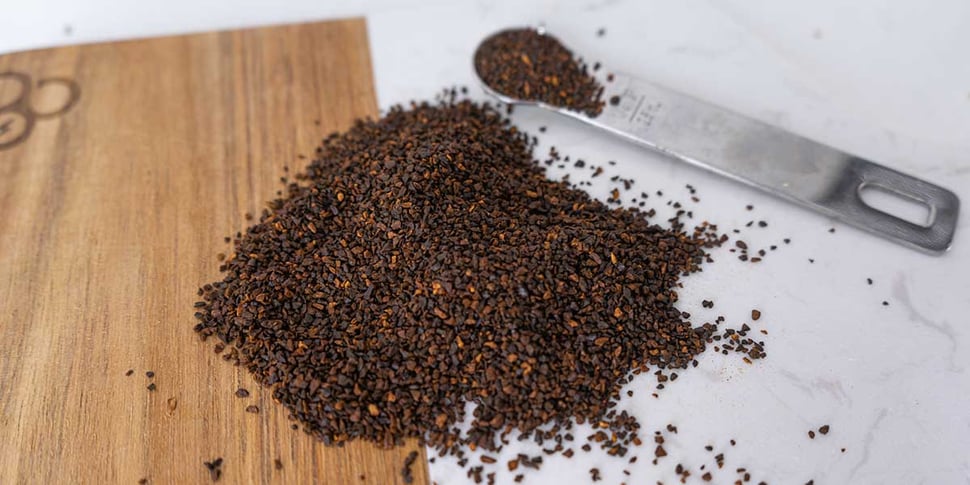
Chicory root is a fibrous rhizome harvested from a plant in the daisy family. It is commonly baked, ground, and used as a coffee substitute or fiber additive due to its high concentration of inulin, one of the prebiotic compounds in chicory.
Along with beneficial prebiotic compounds, chicory root has other minerals such as potassium, calcium, magnesium, selenium, and zinc (10).
The fresh roots have a bitter taste but drinking chicory root coffee or using it as a functional food ingredient when baking, or making protein shakes, helps most adjust to the flavor.
What are the Worst Foods For Gut Health?
Uncovering what style of eating makes you feel the best and achieves your desired health goals is a journey, one that takes patience and a lot of self-love.
There are specific foods that you can slowly remove from your diet to give your gut a break and also improve your overall health. These include:
- Artificial sweeteners such as high fructose corn syrup
- Alcohol (no surprise there!)
- Fried foods
- Processed foods
- Foods with added sugar and soft drinks
These types of foods have been shown to increase inflammation in the gut, cause digestive upset, and promote the growth of unfavorable bacteria (1).
Remember, we are all different, so some of us may be more sensitive to specific foods than others which affect our gut health and overall health. Meaning that someone who is lactose intolerant would consider anything with dairy bad for their gut health while a person who processes dairy with no issues would not.
Tips to Improve Your Gut Health 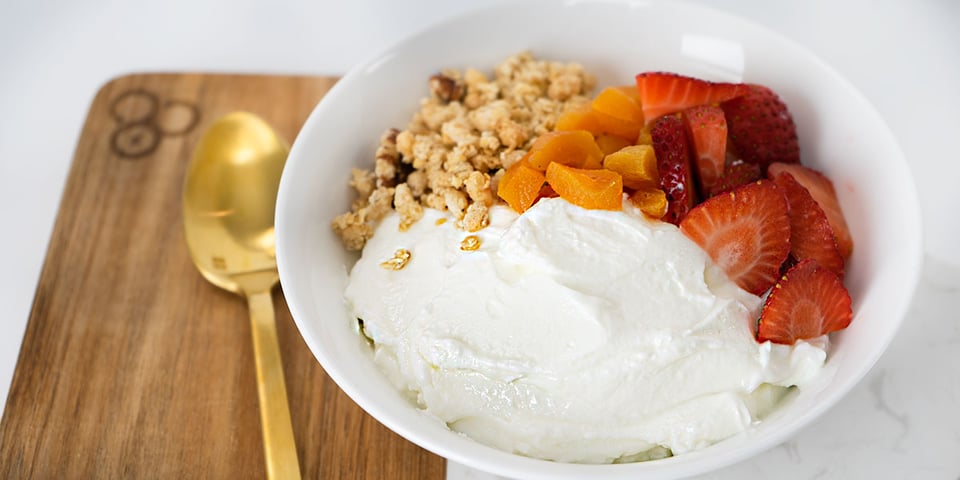
You don't have to change your whole diet at once in order to cultivate a healthy gut microbiota. Making small changes will help you gauge what works for you and what doesn't.
1. Identify Any Food Sensitivities or Allergies
It's hard to improve your gut health if you've questioned whether or not you may be struggling with a food sensitivity or food allergy.
When we constantly ingest foods that cause upset or inflammation then we make it hard for our body to process the foods that are actually trying to help it. It's a lot like trying to fix the plane while you're flying, we need to get grounded before attempting the repairs.
If you suspect you may have a food sensitivity or allergy, consult with your primary care provider and/or dietician to rule out potential triggers and work together to remove them from your diet. Then you can create a better plan and your body will be able to focus on healing, not fighting off the things it doesn't like.
2. Prioritize Variety in Your Meals
Eating a diverse range of foods helps cultivate a diverse microbiome, which is considered a hallmark of a healthy gut (12, 13). Pick 1 new vegetable to try every week or so, or make a trip to your local farmers market to see what's in season!
Alternatively, you can also order Trifecta for ready-to-eat meals packed with variety and nutrient density.
3. Choose Whole, Colorful Fruits and Vegetables
Colorful whole fruits and vegetables contain a variety of phytonutrients, vitamins, and minerals beneficial to cultivating a healthy microbiome and wellness.
These also contain fiber to feed healthy gut bacteria, such as Bifidobacteria, and stimulate their growth.
4. Layer in Fermented Foods
Try to eat fermented foods that contain "live active cultures", such as plain yogurt, kefir, kombucha, or sauerkraut.
Yogurt and kefir are great gut-healthy options for breakfast or a snack throughout the day, as you can add some variety with granola or fresh fruit! You can also use fermented foods as a condiment, like topping off a delicious Asian-inspired bowl with kimchi or adding pickles to a delicious burger!
5. Eat more whole-grains
Whole grains are rich in nutrients and high amounts of fiber.
There are endless for you to try to include: teff, bulgur, pearl barley, quinoa, whole-wheat pasta, buckwheat, oatmeal, brown rice, wild rice, millet, couscous, grits, and bran.
Ready to nourish your gut health? Order Trifecta today to include more enriching foods found inside our ready-to-eat, macro balanced, and chef-prepared meals, delivered directly to your door!

